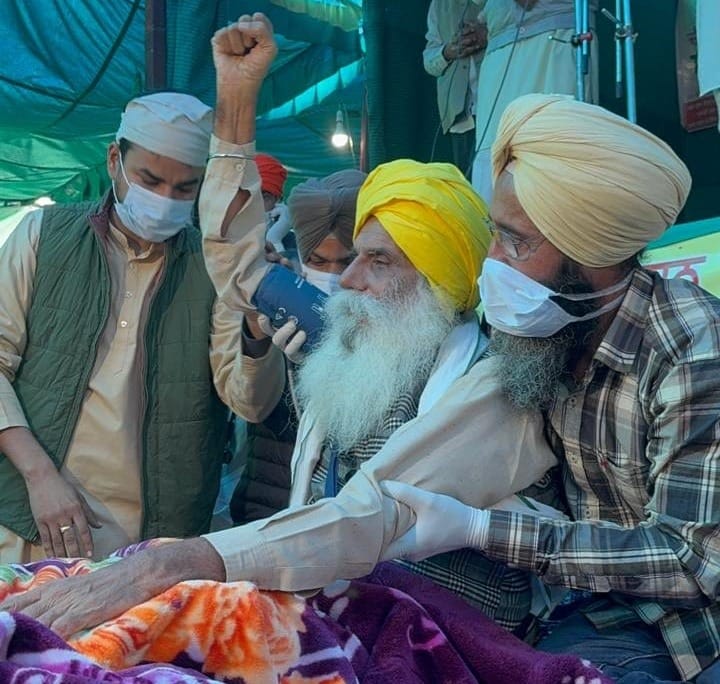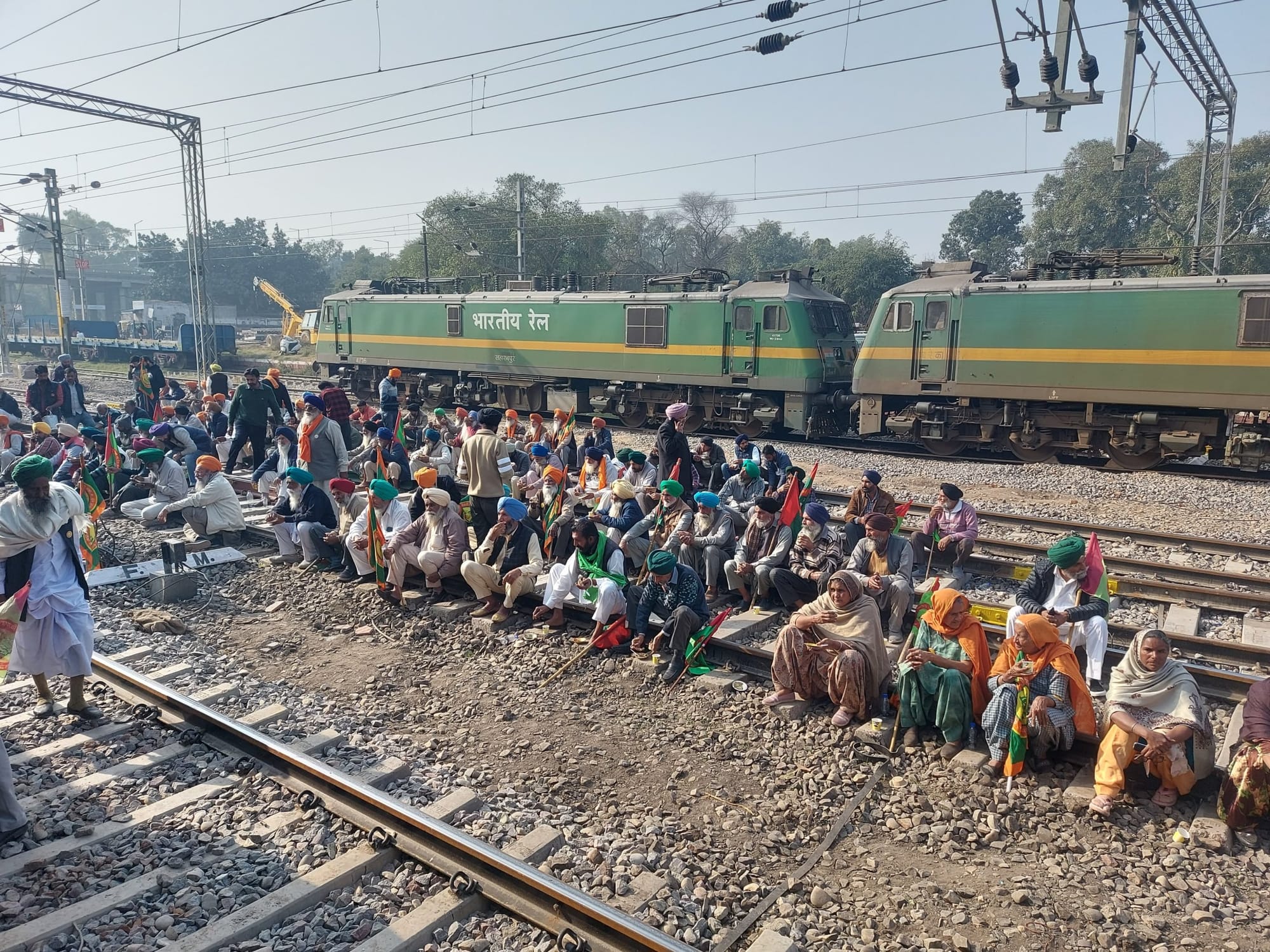'This cycle of suicides must end': Indian farmers demand further reform of agricultural sector

‘If my sacrifice can prevent the suicides of more farmers, I am ready to give my life,’ says Jagjit Singh Dallewal, a farmer from Punjab. He hasn’t eaten for two months as part of a bid to demand the Indian government protect farmers’ livelihoods. Earlier this month, more than 120 farmers began a hunger strike in solidarity with Dallewal.
The Punjab region is often referred to as India’s breadbasket. But over the last few decades farm incomes have declined rapidly. Research shows that more than 9,200 farmers across Punjab died by suicide between 2000 and 2018, with nearly 88 percent of those attributed to farm-related debts.
‘Their families continue to suffer. This cycle of suicides must end,’ says Dallewal, speaking from a stretcher.
The 70-year-old is a key figure in India’s farmers’ movement. His hunger strike is part of a second wave of farmers’ protests that began in February last year, when thousands of farmers marched to the border between Punjab and Haryana states.
Their demands include assured prices on certain crops and loan waivers, as well as compensation for the families of farmers who were killed by security forces during previous protests.
The latest action follows on from the huge protests of 2020, sparked by Indian Prime Minister Narendra Modi’s introduction of three new farm laws that farmers warned would allow a corporate takeover of the agricultural industry. A committee was set up in 2020 to address the crisis but many farmers’ unions have criticized the government's efforts to address their concerns as ineffective.

After a year of intense protests in which hundreds of farmers were injured and several killed, Modi repealed the laws. But farmers argue that without substantial policy changes, their livelihoods remain at risk due to market volatility.
‘If the government meets our demands, I will end my fast,’ says Dallewal, who leads a farmer’s group linked to the Samyukta Kisan Morcha trade union coalition that coordinated the 2020 protests. The 70-year-old agreed to medical aid on 20 January, and the protesting farmers ended their hunger strike, but Dallewal has vowed to continue his action until all their demands are met.
In a letter to Modi in December, Dallewal urged the government to uphold recommendations made by a parliamentary committee that his administration introduce a legal guarantee for the minimum support prices.
The government has agreed to meet protesting farmers on 14 February but many fear Dallewall will not survive another two weeks without food. Four rounds of meetings between officials and protesting farmers last year remained inconclusive.
— Sajid Raina and Tauseef Ahmad in Punjab
📰 Read more about the 2020 farmers' protests in this explainer by Tarun Gidwani
👉 Follow Yogendra Yadav, one of the leaders of the 2020 farmer protests
✊ Get involved with the People's Archive of Rural India, which publishes stories from a network of volunteers that document the everyday lives of everyday people in the country
Are you a freelancer? Pitch us a story
Looking for more? Listen to our podcast The World Unspun
Shop ethical goods at our very own Ethical Shop

